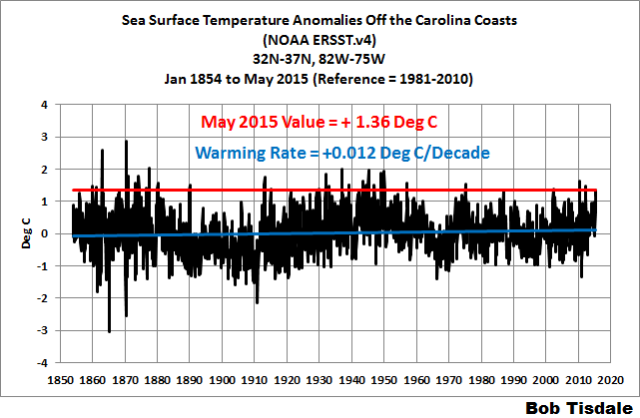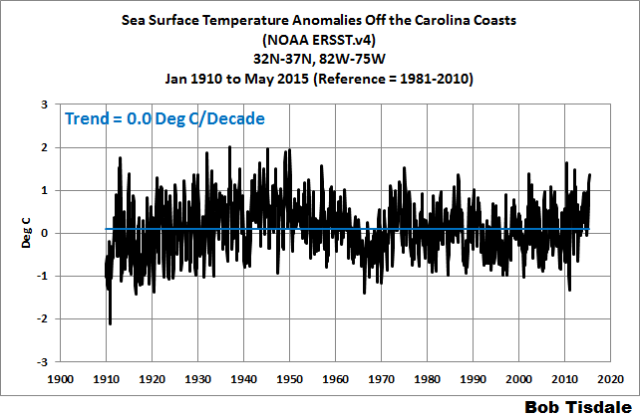There has been a series of shark attacks off the Carolina coasts. As of last count, the number is 11 shark bites since mid-May.
As one might have expected, from mainstream media’s let’s-see-what-we-can-blame-on-global-warming department comes the CBSNews article “Strange” spike in shark attacks puzzles experts. The news report includes (my boldface):
The recent spate of shark attacks has left many beachgoers nervous.
Dr. Samuel Gruber, the director of the Bimini SharkLab research facility in the Bahamas, says the spike in attacks suggests something strange is going on.
“The trend is normally zero or one attack in that area in any one year,” said Gruber.
Theories as to why this is happening range from time of day, to bait fishing, sea turtle migration, lunar cycles and global warming.
Whose theories? The author doesn’t say.
Maybe, just maybe, there’s another factor at work. Let’s call it the dufus factor, which states anyone who goes swimming in North and South Carolina waters, where there have recently been shark attacks, is very likely a dufus…plain and simple, a dufus.
WHAT ABOUT THE SEA SURFACE TEMPERATURES THERE?
Using the coordinates of 32N-37N, 82W-75W for the North and South Carolina coastal waters, according to NOAA’s new ERSST.v4 sea surface temperature dataset, the May 2015 sea surface temperature anomaly was +1.36 deg C, referenced to 1981-2010. See Figure 1. But that’s not unusual there. Sea surface temperature anomalies have been higher in the past…especially in the 1930s and 40s. Note also how low the warming rate there has been since the start of the dataset in 1854.
Figure 1
Clearly, the sea surface temperatures off the Carolina coasts have cooled since the 1930s and 40s, so let’s see how far back in time we can go, in 5-year increments, until the data show no warming for that region. The results are shown in Figure 2.
Figure 2
Based on the linear trend, NOAA’s new ERSST.v4 data show the surfaces of the waters off the coasts of North and South Carolina have not warmed in more than a century.
Once again, mainstream media has failed to do its homework.
SOURCE
NOAA’s ERSST.v4 data are available at the KNMI Climate Explorer





“Theories as to why this is happening range from time of day, to bait fishing, sea turtle migration, lunar cycles and global warming.” Simple ! Just look up the evidence for any of those and then confirm/refute. Was it time of the day, bait fishing, sea turtle? We don’t know in absence of data. Lunar cycles or global warming? We have the data, suffice to look it up.
Thank you Bob for looking up the data for us.
Thanks, Bob.
Sea turtles are beginning to hatch now as the first nests.
The sea turtle nesting season in Florida runs from March through October on the Atlantic coast, and from May through October on the Gulf coast. I don’t know about the Carolinas.
I saw this on the local news last night. They did mention the possible connection to AGW, but followed that with a shark expert who said it was simply math.
They could make a film about these events. What to call it eh?
JAWS that’d be a good title
It is of course too late
One rogue shark. Five victims. A mysterious threat. And the era of the killer great white was born
http://www.smithsonianmag.com/history/the-shark-attacks-that-were-the-inspiration-for-jaws-15220260/?no-ist
Back in 1916 on the Jersey Shore – one of the cooler periods of the twentieth century.